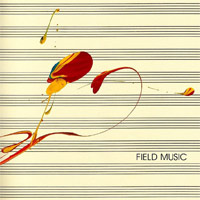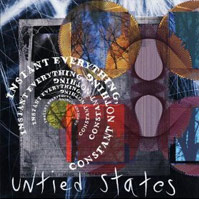
Rebirth
Cash Money
One of my favorite web columns is the Onion AV Club’s My Year of Flops, in which Nathan Rabin alternately praises and eviscerates some of the most ill-fated movies of all-time. For those with a perverse curiosity about notoriously reviled films like Battlefield: Earth and The Island of Dr. Moreau, this masochist has put himself through the pain of watching them so you don’t have to. That’s kind of the way I feel listening to Rebirth, the latest album by Lil’ Wayne and a prime candidate for an inaugural case study if anyone decides to create the musical equivalent to My Year of Flops. (Other prospective entries include Chinese Democracy and Be Here Now). In fact, I can almost picture Lil’ Wayne, fresh off the success of Tha Carter III, conferring with his associates about the direction of his new album.
“Well, Weezy, you’ve pulled off the unbelievable feat of appealing to mainstream audiences, rap-heads, buttoned-up critics, and indie kids all at once. What demographic is left for you to conquer?”
To which Lil’ Wayne responds, as he literally pulls an electric guitar out of the ether, “I’d like to make an album for all the Juggalos and Korn kids.”
Yes, it’s official: Lil’ Wayne has turned to rap-metal. Rebirth announces its intentions with a ridiculous guitar solo that would barely pass muster in a Guitar Hero cut-screen before delving into “American Star,” a song that marries auto-tune and classic rock riffs in a way that would make Kid Rock proud. Even when isolated guitar lines are tolerable, as on first single “Prom Queen,” they seem to add a false sense of pathos and catharsis to songs that are about little more than the underpants of high school girls. One of the only times his rudimentary guitar-playing sounds like a natural extension of his artistic vision is on “Da Da Da,” which ends up being little more than a cheap approximation of a Black Eyed Peas outtake.
So is there anything to like on Rebirth? I guess I respect the spirit that would compel a pop star to write a song like “Paradice,” which brings to mind bands like Staind and is so far removed from the current climate of popular music that it must be the product of either a crazy person or someone who is just that into late-90s butt-rock. Also, it’s hard to hate something as uniformly cheesy as “On Fire,” which basically sounds like a lost hip-hop prodigy fighting a losing battle against one of the bosses from Mega Man 2. But after giving away hours of superb mixtape rhymes and offering up one of the most widely appreciated albums of the last decade, I think the man deserves a mulligan on this one.
David Holmes

Heligoland
Virgin
Heligoland marks the return of the trip-hop duo of Robert “3D” Del Naja and Grant “Daddy G” Marshall, a.k.a. Massive Attack. It’s their first studio album since 2003’s 100th Window. The pair hasn’t dropped off the radar completely, however, each busy with various projects during the interim, including several soundtrack scores by Del Naja. But perhaps the term “trip-hop” is no longer accurate, belonging as it does to the mid-90s, a time when people went to raves and mega clubs, carried pagers and fretted over their pet Tamagotchis. Whatever the term, though,these pioneers refuse to sound dated, crafting hauntingly beautiful songs that, if not breaking ground, at least tread dark water.
This album is also a reunion of sorts with the duo’s roots in the Cherry Bear Organisation (then-manager Cameron McVey and Nenah Cherry), which financed a group of artists in the early ’90s, including Tricky and Portishead. Martina Topley-Bird, one of the voices of trip-hop as an early Tricky collaborator, lends her vocals to “Psyche” and appropriately takes Tori Amos–like pronunciation liberties on “Babel.” Adrian Utley (of Portishead) provides guitar for “Saturday Comes Slow,” backing the melancholy voice of Damon Albarn (Blur, Gorillaz). Albarn also plays bass on “Flat of the Blade,” this time featuring vocals by Guy Garvey of Elbow, and contributes some eerie keyboards to “Splitting the Atom.” Other notable guests include TV on the Radio’s Tunde Adebimpe, who sings “Pray for Rain,” and Hope Sandoval is the owner of the sweet voice found on “Paradise Circus.” With nearly two decades of experience, the duo’s talent for atmospheric soundscapes is without question. But lest one forget in Massive Attack’s absence, Heligoland is a valuable reminder.
Josie Rubio

Peace & Love
Ye Olde
As any warm-blooded, teenaged grunge boy in the early ’90s knows, Juliana Hatfield was cooler than Courtney Love and that one girl from Belly put together and a better songwriter than either could hope to be. She had a particular way of seeming completely indifferent to rock trends—most of her stuff sounded like REM and other college rock rather than chunky, fuzzed-out grunge—all the while knowing how to play to her audience (Kool-Aid-dyed alterna-teen girls with chokers and the boys in flannel that longed to mope near them).
Hatfield proved long ago with the Blake Babies, Some Girls, and especially, with the Juliana Hatfield Three that she is adept at crafting the rollicking and lyrically sharp pop song. Peace & Love, on the other hand, is nearly devoid of a rhythm section, as Hatfield sticks mostly to multi-tracked acoustic guitar and layered vocals. With the exception of “Evan,” there are no standouts melodically or lyrically. Consistently throughout her career she has made slacker lyrics sound appealing and devoid of cliche, like the way here she drawls, “I just love you, I guess,” on the aformentioned (obvious) ode to frequent collaborator and equally iconic grunger Evan Dando. So why does she want to sound like Elliott Smith instead of the rollicking Juliana Hatfield I fell in love with in 1993? Of course, she’s “grown” and “matured” as a singer and a songwriter, but that holds no value when there isn’t a song on the record that deserves to be cranked up. Yes, it is melodically sweet and lyrically intimate and heartfelt. Yes, it sounds like she recorded it on her own in a room. (She did.) Yes, it is a grown-up album and most of her fans are grown-ups. Hatfield can’t be faulted for wanting to do something different, but she didn’t have to drop what made her so appealing in the first place to complete the departure.
Michael P. O’Shaughnessy

(Measure)
Memphis Industries/Revolver
Look at them: they reformed the band, rushing in to once again fill the void left by the continued non-existence of XTC. This time out, Field Music have dared to do the undoable, releasing a double-album in the age of the internet single. The opportunity here is to create something that rewards extended attention and patience, and precisely half of the time they manage to do so.
The first disc is deliberately paced like a good mixtape, sneaking in and building tension with lite-rock melodies and great dynamic variety. That eases you into “Each Time Is a New Time,” a gigantic, arty song with a soaring chorus and a complex structure that suddenly turns acoustic halfway through before building itself back up for a bluesy climax. Reading that sentence back, I realize it describes a number of these songs, and yet each track has its own take on the essence of the band’s deviant pop mission. One at a time, strings, mallets, synths and pianos drop in for bold, colorful strokes as the ever-changing context requires. These 10 tracks rise and fall, occasionally meandering further afield, but in general feeling like a great album, complete unto itself.
Field Music left the second disc for things to fall apart, it seems. It’s hard not to think of this as the supplemental half. “The Rest Is Noise” is an incredibly strong start, but even with a few distinct pleasures (like the violin-laced “Choosing Numbers”) sprinkled throughout, most of these songs prematurely terminate without having taken us anywhere. However, I would be remiss if I didn’t mention the superior irony present in “Something Familiar,” as here the band twists a catchy melody into dissonant chords while singing, “You want to hear something familiar?” They’re refreshingly aware of their own pretensions, but that doesn’t keep their proggy affectations from downgrading the success of the opus’ first half and dragging the second slice down into wonky mediocrity.
Matt Slaybaugh

Falling Down a Mountain
Constellation
After lying dormant for five years and losing some members in the interim, the Tindersticks resurfaced in 2008 with Hungry Saw. It was a fitting return, particularly in form, with the band creating an album lit with blue-flamed soul and manifested from a swirl of strings, horns, lithe guitar, bass and drums, and singer Stuart Staples’ emotive warble.
With a near year-long tour following Saw’s issuance and another full-length album recorded and now seeing release, the Tindersticks evidently aren’t ready yet to go home to roost. Falling Down a Mountain is that record, and like its predecessors, it was cut from a cloth sewn from heart strings and the tendons that link Al Green and Burt Bacharach. Only, for the first time, the band has ventured off the righteous path, seemingly forgetting that true love travels on a gravel road, not middle ground.
By the band’s own admission, Falling was essentially written whenever they could find the free time while on the road. This rushed approach is palpable in the record’s lack of depth. The lead and title track may develop at a slow simmer, but lyrically it’s comprised of just a handful of repeated lines. Staples stretches himself a bit more with “Harmony Around My Table,” but the song still seems like the split difference between Dusty Springfield and Kim Wilde. (I dare you to tell me that the melody doesn’t recall “Kids in America.”) There are few moments on the record that coalesce into anything approaching the heights of the band’s past work (simpler moments like “Keep You Beautiful” and “Factory Girls” being the exception), and though that may be a tall measuring stick, it’s the one of their own making.
Stephen Slaybaugh
MP3: “Black Smoke”

Tomorrow, In a Year
Mute
The elusive electro-pop duo, the Knife, is back with their first release since 2006’s critical darling, Silent Shout. Known for their quirky antics both on and off the stage (donning Venetian and bird-like masks, refusing to accept or attend the Swedish Grammis awards, etc.), it might come as no surprise, then, that they chose to follow up the success of Silent Shout with a revolutionary and evolutionary (quite literally) opera based on Charles Darwin’s infamous On the Origin of Species. Collaborating with theatre experimentalists, Hotel Pro Forma, the piece, titled Tomorrow, In a Year, premiered at the Royal Theatre in Denmark in early September.
What follows now is the musical segment of that performance, a pseudo-conceptual album of the same name in collaboration with deejay Mt. Sims and electro-psych outfit PlanningToRock, with vocal contributions by mezzo soprano Kristina Wahlin Momme. The album version of Tomorrow is a more listener-friendly, yet still exceptionally long, adaptation of the opera, comprised of two discs equivalent neither in length nor listenability, which sometimes seem as endless as our own comprehension of life. Undoubtedly, it’s a fascinating concept, though one that may well alienate fans of the band’s usual sound.
Tomorrow begins at the dawn of it all with a flicker of sound. It’s a bubbling tremolo representing the earliest forms of life, though, if the speakers aren’t at maximum volume, you might miss this little miracle. It follows like this throughout the entirety of the first disc, building tension, spanning time, breeding life, and subsequently, machinery. Much of the music leans upon atonal machinations and interpretations of real and imagined natural sounds: early amoebas, lava, tectonics, etc. The sheer immensity of technical maneuvering and mastering, as well as sound creation, that went into producing this album is almost incomprehensible. Every noise—every small blip, grinding thud or shrill, earsplitting howl, whether pleasant or headache inducing—feels and sounds as though it was chosen and placed with painstaking care to breed something from nothing, reminiscent of the organic fashion in which life arose.
The second disc is much more suitable to the ears of the traditional listener, with rhythmic intros, ersatz choruses, and actual song-like structure. The haunting vocals provided by soprano Momme add a layer of tension and intensity outside of the background drivel. (Though, as is the case with most operatic singers, don’t expect to process a word of what she’s saying.) However, in skipping straight to this disc, one might, albeit metaphorically, miss out on the spark of life that allowed these musical musings to exist, and not to mention, vastly strange and stunning feats of musical production.
Jennifer Farmer

Instant Everything, Constant Nothing
Distile
Ambition can be a double-edged sword. Sure, you want to make sure that you’re constantly pushing yourself, but there’s also the risk of trying to shove 25 pounds of ideas into a ziploc bag. Atlanta-based quintet Untied States are very ambitious, and their fourth album, Instant Everything, Constant Nothing, is filled with creative impulses—to the point of seeing how much can be thrown into a song before it totally falls apart. Thankfully that never happens.
It’s a razor thin line between clever and stupid, and there are stacks and stacks of records taking a similar approach. Untied States neatly sidestep the traps into which too many bands fall. Much of Instant Everything sounds like five or six different bands fighting it out over the course of one song—hence the album title—but nothing wears out it’s welcome. They seem to know just when it’s time to move on to the next idea, and rather than just being self-indulgent, such shifts actually work in service of the song.
Musically, Untied States fall comfortably on the art-damaged post-punk spoke of the indie wheel. There are manipulated samples, buried vocals, screaming guitars and drastic mood shifts that suggest a hyperactive child trying very hard to focus. The throat-shredding vocals of Colin Arnstein also suggest screamo, but at their core, the songs on Instant Everything are pop, only wrapped in a cloak of distortion.
One of the best examples of this M.O. is “These Dead Birds.” It begins with a delicate, Radiohead-ish opening that is forcefully interrupted by exploding guitars and a nasal howl only to collapse back into a fragile waltz wrought with a nearly unbearable tension until it explodes once again. Just as exemplary is the hard-charging “Not Fences, Mere Masks,” which has so many twists and turns it’s like jumping on a trampoline with a bowl of Jell-O. Without risk there can be no reward, and it’s good to see a band that not only takes risk, but is also able to make them pay off.
Dorian S. Ham

The Stormy Petrel
No Idea
Leatherface’s Frankie Stubbs could probably put his guitar down and never write another song and few would take notice. But over the course of seven albums, released sporadically during the past two decades, he’s proven himself to be one of the great unsung punk laureates. Indeed, there are few couplets as wonderfully simply put and poignant as “He bought you flowers, and I bought you drinks. You can’t drink flowers, but flowers can drink” (from “Watching You Sleep”). And his cover of “True Colo(u)rs” from the same album, 2000’s Horsebox, is full of more rough hewn emotion than Ms. Lauper’s original version. With eviscerating guitar licks and Stubb’s salty wheeze rounding out the delivery, Leatherface, by all rights, should be an international treasure.
Fortunately for us, Stubbs has put himself to the task of album number eight, the first since 2006’s Dog Disco, and The Stormy Petrel isn’t lacking in the gruff sentimentality and cut-to-the-quick riffs that have become his stock and trade. A few listens of the strident tug-and-shove of “Nutcase” or the synoptic crunch of “Diego Garcia” give quick evidence of Stubbs’ continued vitality. He’s always come off a bit like he’s at the end of his tether (or at least, the edge of his barstool), and when he sings “Have another dance on my grave,” one can tell it’s not all black humor. “Disgrace,” on the other hand, which is built atop a Tommy-gunned riff, takes pointed aim at hypocrisy, while still coming back to the sentient refrain of “I’ll be with you for all my days.” It’s this bittersweet mix that gives Stubbs’ songs their poignancy and— given the infrequency of Leatherface’s releaes—makes them worth savoring.
Stephen Slaybaugh

Magic Chairs
4AD
For a band with such a found-sound, post-classical disposition, Efterklang has always happily entwined their cosmopolitan strings and brass with remarkably snugly pop sensibilities. Their latest, Magic Trees, is easily their most affable effort, infiltrating such mainstream mainstays as NPR’s All Songs Considered, while never sacrificing any of the curious enchantments of their previous, more obscured work.
Lead single (and first track) “Modern Drift” leaves nothing tenebrous. Contrarian, mind-boggling piano clinks glide along with massive drums and a regal horn flotilla, keeping everything suspended in a heavenly balancing act that never settles down or lets the feelings wear off. “Harmonics” is a wobbly, Longstretchian dizzed ballad, a clapboard bass-kick trading counterpoints with a schlepping, out-of-focus tuba while some token “ah-ahs” are plunked down. The record even has a vague slow-jam in “The Soft Beating,” which features Casper Clausen’s lovemaking melter, “The letters will come and go to the rhythm back and forth. Never stop the day.”
For all its lack of impenetrability, Magic Trees never comes off boring. In fact, it manages to synthesize the oft-forgotten wonders of classical sentiments with honest-to-god indie pop, sounding just abstract enough to resist hasty generalizations. And that speaks to the whole essence of Efterklang, who seem to hover just beneath the perceptions of most record-muddling elitists while still delivering consistently good material. They’ll always be second-banana to fellow Scandinavians Sigur Rós, but Magic Trees proves they should at least be mentioned in the same sentence.
Luke Winkie
MP3: “Modern Drift”
ALBUM REVIEWS
You Say Party! We Say Die! XXXX
Puerto Muerto, Drumming for Pistols
U.S. Girls, Go Grey
The Watson Twins, Talking to You, Talking to Me
Ashley Beedle Presents Mavis
Malachai, Ugly Side of Love
Fucked Up, Couple Tracks
Pierced Arrows, Descending Shadows
Medication, This Town
Bomb the Bass, Back to Light
The Magnetic Fields, Realism
Los Campesinos, Romance Is Boring
Clipd Beaks, To Realize
Beach House, Teen Dream
